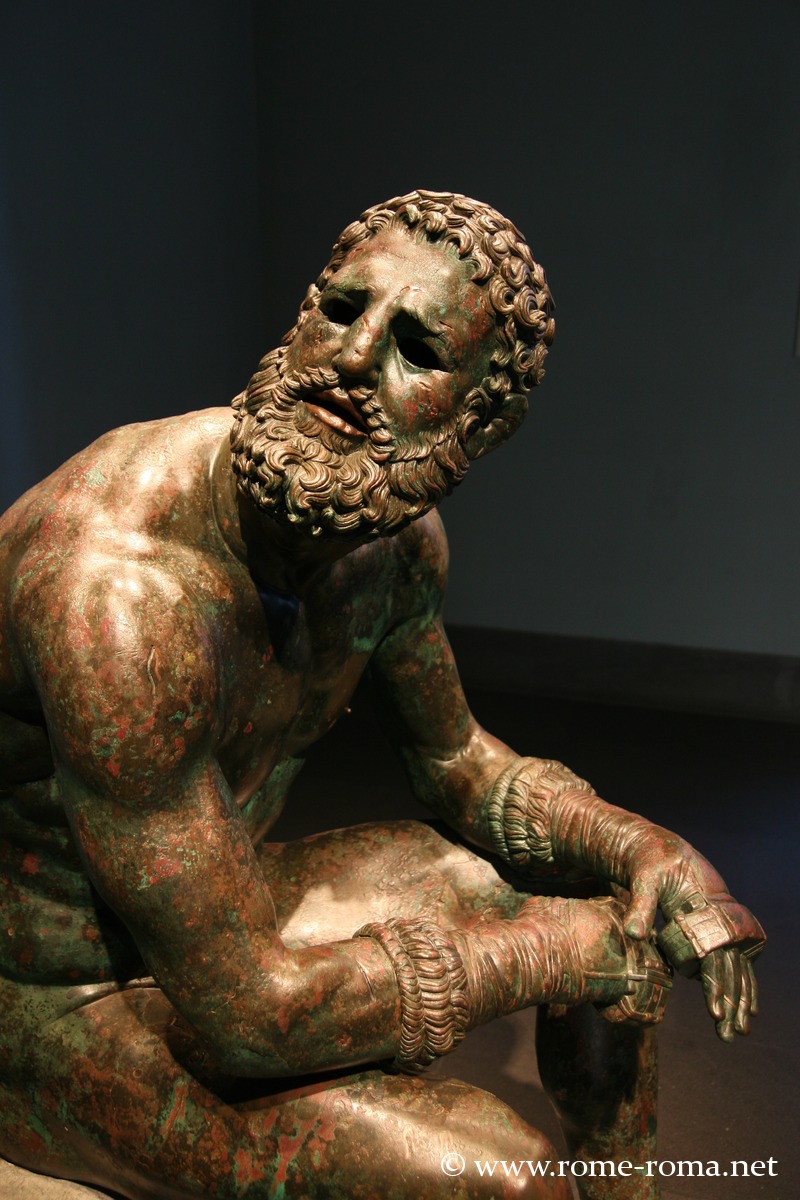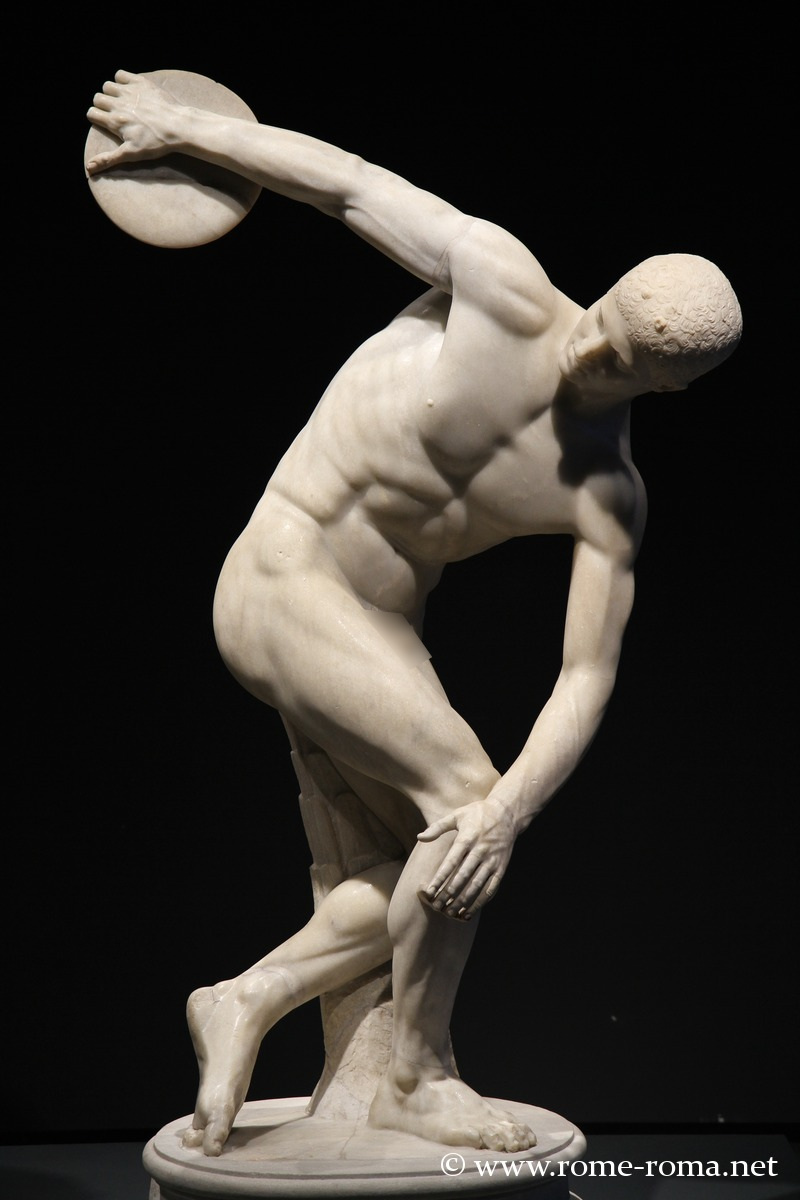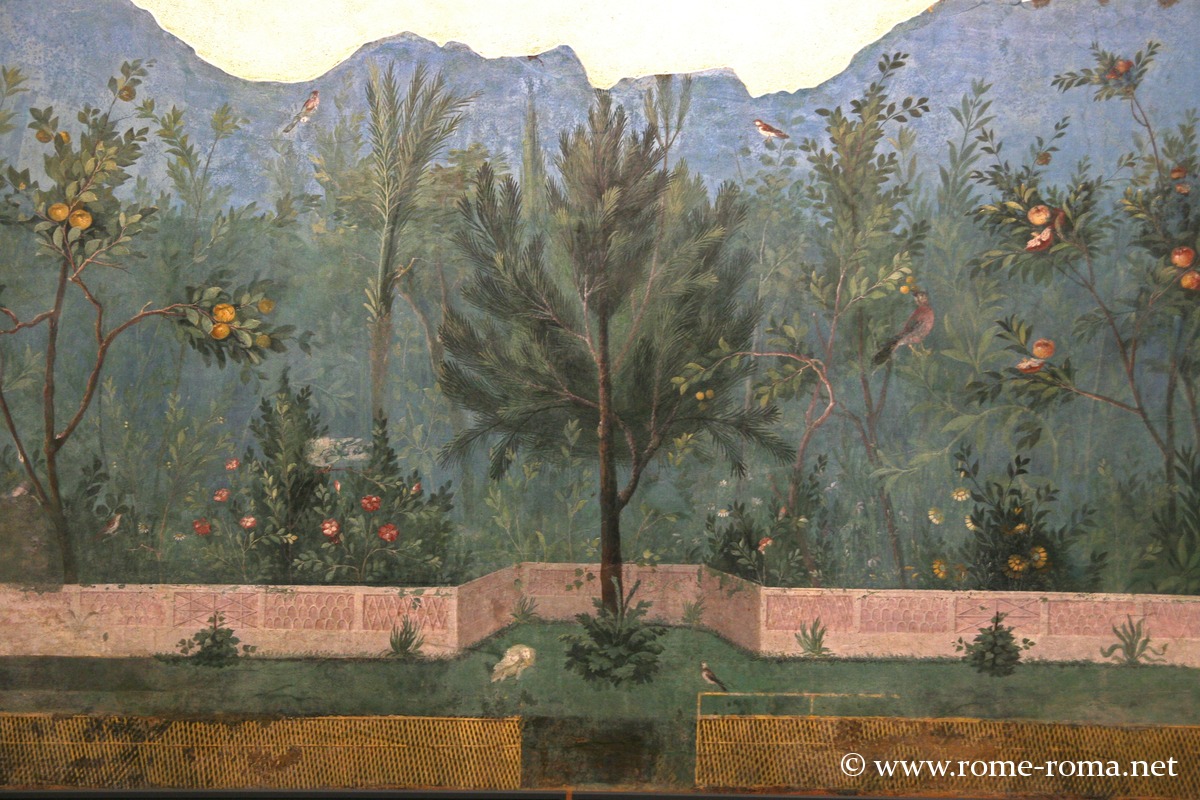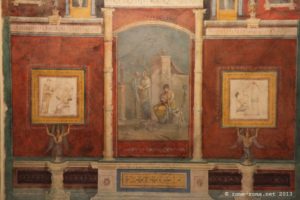The Palazzo Massimo alle Terme, located near Termini Station, is the main building of the National Roman Museum. It houses the most significant section of this prestigious institution, founded in 1889.
Dedicated primarily to ancient Rome, this museum, housed in a 19th-century neo-Renaissance palace, displays an exceptional collection of archaeological artifacts from excavations in the city and its surroundings. It offers a panorama of Roman art and culture, from the Republican era to Late Antiquity.
The Museum’s Collections
The collections are organized across four floors, ranging from sculptures to frescoes, mosaics, and an outstanding numismatic collection.
- The ground floor is devoted to masterpieces of ancient sculpture from the Republican era and the Julio-Claudian dynasty (1st century BCE to 1st century CE). Among the highlights are the Discobolus Lancellotti—a Roman copy of a Greek statue—and imperial portraits of Augustus and Livia, exemplifying the realism of Roman portraiture.
- On the first floor, works spanning from the Flavian Imperial age (1st century CE) to Late Antiquity (4th–5th centuries CE) are preserved. This section showcases monumental sculptures, including statues of emperors and deities, as well as richly decorated pagan and Christian sarcophagi that reflect evolving beliefs and artistic styles over the centuries.
- The second floor is likely the museum’s most fascinating level, featuring the frescoes and mosaics from Roman villas. Among the treasures are the frescoes from Livia’s Villa, originally part of the villa of Augustus’s wife at Prima Porta, recreating a lush garden with stunning precision. Mosaics from the Villa Farnesina, originally part of a 1st-century BCE aristocratic residence, are also reconstructed in rooms reflecting their original volumes, offering an immersive experience into Roman luxury.
- In the basement lies the most important numismatic collection in Italy, bequeathed by King Vittorio Emanuele III of Savoy. The collection traces Roman monetary history—from the earliest bronze coins of the 3rd century BCE to Late Imperial gold issues—accompanied by precious objects like jewelry and medallions, shedding light on the economy and imperial iconography.



Rooms of the museum
- National Roman Museum of Palazzo MassimoThe Palazzo Massimo alle Terme, located near Termini Station, is the main building of the National Roman Museum. It houses the most significant section of this prestigious institution, founded in ...
Conditions of visit and information
| Tickets to visit the National Roman Museum | |
| Hotels, rooms and apartments near the monument |
| Open from Tuesday to Sunday from 9:30 am to 7:00 pm. Last entries until 6:00 pm. Closed on Mondays (unless otherwise specified). The ticket office closes one hour before the closing time. For exceptional openings or closures, please consult the official website. |
| Full-price combined ticket for the four sites of the National Roman Museum (valid for 7 days): €15; reduced price: €2 (for EU citizens aged 18–25, upon presentation of a valid ID) + possible surcharge of €3–5 for temporary exhibitions. Full-price single-site ticket: €8; reduced price: €2 + possible surcharge of €3–5 for temporary exhibitions. During exhibitions, additional charges may apply. |
| Links: Official site (English), City of Rome site |
Map and address
Address : Largo di Villa Peretti, 2, 00185 Roma RM, ItalieTravelers' Map is loading...
If you see this after your page is loaded completely, leafletJS files are missing.
If you see this after your page is loaded completely, leafletJS files are missing.
Places of the National Roman Museum
- National Roman Museum
 The National Roman Museum was established in 1889 to preserve and showcase the remains of ...
The National Roman Museum was established in 1889 to preserve and showcase the remains of ... - National Roman Museum of Palazzo Massimo
 The Palazzo Massimo alle Terme, located near Termini Station, is the main building of the ...
The Palazzo Massimo alle Terme, located near Termini Station, is the main building of the ...



